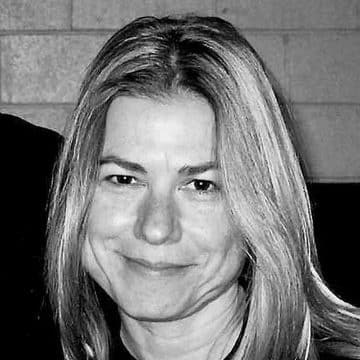As the body’s pump struggles, problems build
Evanston resident Marjorie David has been living with heart failure for more than two decades. Leading up to her diagnosis, a few heart issues — mitral valve prolapse and occasional heart racing — were mildly concerning but didn’t slow her down.
Then one day in 1997, the now-retired Chicago newspaper editor collapsed at work — the first hint that she had developed more serious heart issues, including an arrhythmia. Her physician implanted a pacemaker and defibrillator, and two years later replaced her leaky mitral valve.
Six months after the surgery, David developed heart failure. “I had a lot of fluid in my face, legs, and hands, and shortness of breath,” she says. “I just looked swollen.” Her walks around downtown Chicago made her fatigued.
Yet, David’s heart did not stop, or fail, as the name of the condition implies. Rather, in heart failure, a weakened heart can’t pump enough blood to supply the body with the oxygen it needs. And the problems build from there.
The heart’s workload
David is one of an estimated 6.2 million Americans who live with heart failure. Each year, physicians diagnose nearly 900,000 new cases in the U.S., according to the American Heart Association. Yet many of us don’t understand what heart failure is or how to prevent or treat it.
“It can be a misleading term,” says Tisha Suboc, MD, a cardiologist who specializes in advanced heart failure and transplant cardiology at Rush University Medical Center. “It sounds like the heart is no longer working at all, but that’s not correct.”
It can be a misleading term. It sounds like the heart is no longer working at all, but that’s not correct.”
Heart failure, also known as congestive heart failure, is a chronic, progressive condition in which the heart muscle no longer pumps enough blood to meet the body’s need for oxygen and blood supply. “Basically, the heart can’t keep up with its workload,” Suboc says.
Although there’s no cure, when heart failure is treated and managed well, Suboc says, “We do see improvements in heart function and symptoms in a significant number of patients.”
The most common heart failure symptoms include shortness of breath during daily activities, fatigue, trouble breathing when lying down, and edema — a buildup of fluids, especially in the legs and feet.
Preventing heart failure
“Because the vast majority of heart failure is related to some underlying disease, a large amount can be prevented,” says Gregory Mishkel, MD, division head of cardiology and co-director of the Cardiovascular Institute at NorthShore University HealthSystem.
To prevent heart failure before it occurs, individuals need to adopt healthier practices. That means preventing or managing diabetes, reducing weight, treating sleep apnea, stopping smoking, aggressively treating high blood pressure, and addressing cholesterol problems before they advance to coronary artery disease, Mishkel says.

Certain health conditions — most commonly, coronary artery disease, previous heart attacks, and high blood pressure — increase risk of the disease. Diabetes, obesity, heart valve disorders, arrhythmias, viruses, and other heart conditions also increase your risk.
Prevention and treatment of heart failure starts with making important changes, Suboc says. “We always recommend lifestyle changes: quit smoking, limit fluid intake, limit or avoid alcohol and caffeine, eat a heart-healthy diet, and be physically active.”
Once diagnosed, David changed her diet, cutting out sodium and alcohol and eating a low-fat diet. She took a range of medications and enrolled in a cardiac rehab program that involved walking on a treadmill, exercising on an elliptical machine, and doing light weight training.
“That was a really important step for getting in control of my life again,” David says. “Exercise makes you feel so much better, but at the beginning it’s hard because you are starting out very slowly.”
Medical treatments
To treat heart failure, doctors first address any underlying conditions. If someone has a blocked artery due to coronary artery disease, a doctor might recommend coronary bypass surgery. If leaking heart valves are the issue, “We may do valve replacement or repair,” Mishkel says.
The main treatment therapies are medications to decrease symptoms and slow the progression of heart failure, Suboc says.
Physicians prescribe various classes of drugs, including ACE inhibitors and beta blockers to reduce blood pressure, diuretics to decrease fluid retention, blood thinners to reduce the risk of blood clots, digoxin to treat abnormal heart rhythms, and other medications to slow the heart rate and decrease the heart’s overall workload.
Besides medication, implantable devices are also helpful for some people with moderate heart failure who have been hospitalized in the past.
One such device, Abbott’s CardioMEMS HF System, uses a miniature, wireless remote monitoring sensor that doctors implant in the pulmonary artery to measure heart rate and pulmonary artery pressure. An increase in pressure signals that a person’s heart failure is worsening.
“People can be cared for from the comfort of their own home. It’s a timely innovation,” says Philip Adamson, MD, divisional vice president of global clinical affairs and chief medical officer at Abbott.
To take daily readings, the person with the implant lies on a pad and presses a button to record the readings and transmit them to their healthcare provider. Physicians can respond quickly to the information, adjusting medications or recommending lifestyle changes, which cuts down on emergency room visits and hospitalizations.
Keys to success
Heart failure is a chronic disease that needs lifelong management.
For the past two decades, David has been keeping daily track of her weight, blood pressure, heart rate, and other measurements to make sure her medications are working properly. When unexpected changes occur, she talks to her care team so they can make adjustments to help her heart.
“It just makes you feel so awful if youdon’t do those things. Your energy changesif your heart has a harder time pumping,” says David, who continued working full time until her retirement in 2008.
David has managed the condition without letting it stop her. Until the Covid-19 crisis began, she maintained a busy social life, attended concerts, and worked on photography and art projects.
“With heart failure, you are learning to live with the symptoms and rearranging your life to deal with permanent changes in how your body handles a range of things,” she says.
“It’s like walking a tightrope. You have to find your balance, learn to live with your limitations,” she says. “You’d like to live a carefree life, enjoy the foods and wines you loved. You no longer can do that, but you can still enjoy life.”
Originally published in the Spring/Summer 2021 print issue.

Anne is a journalist, Zendou martial artist and former bike racer who enjoys training, coaching, writing, and good craft beer.












